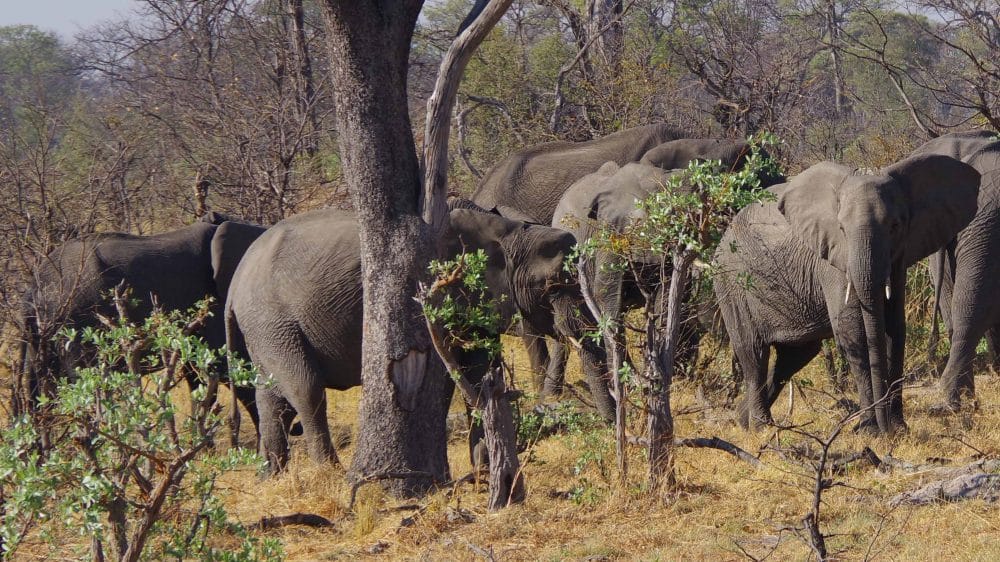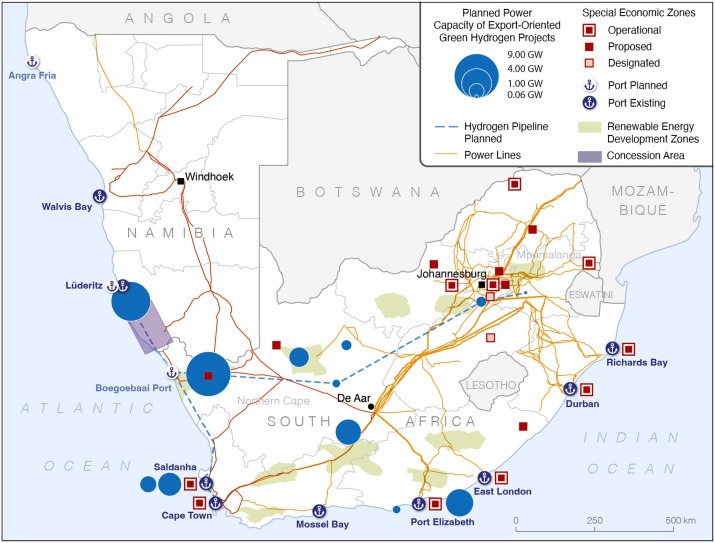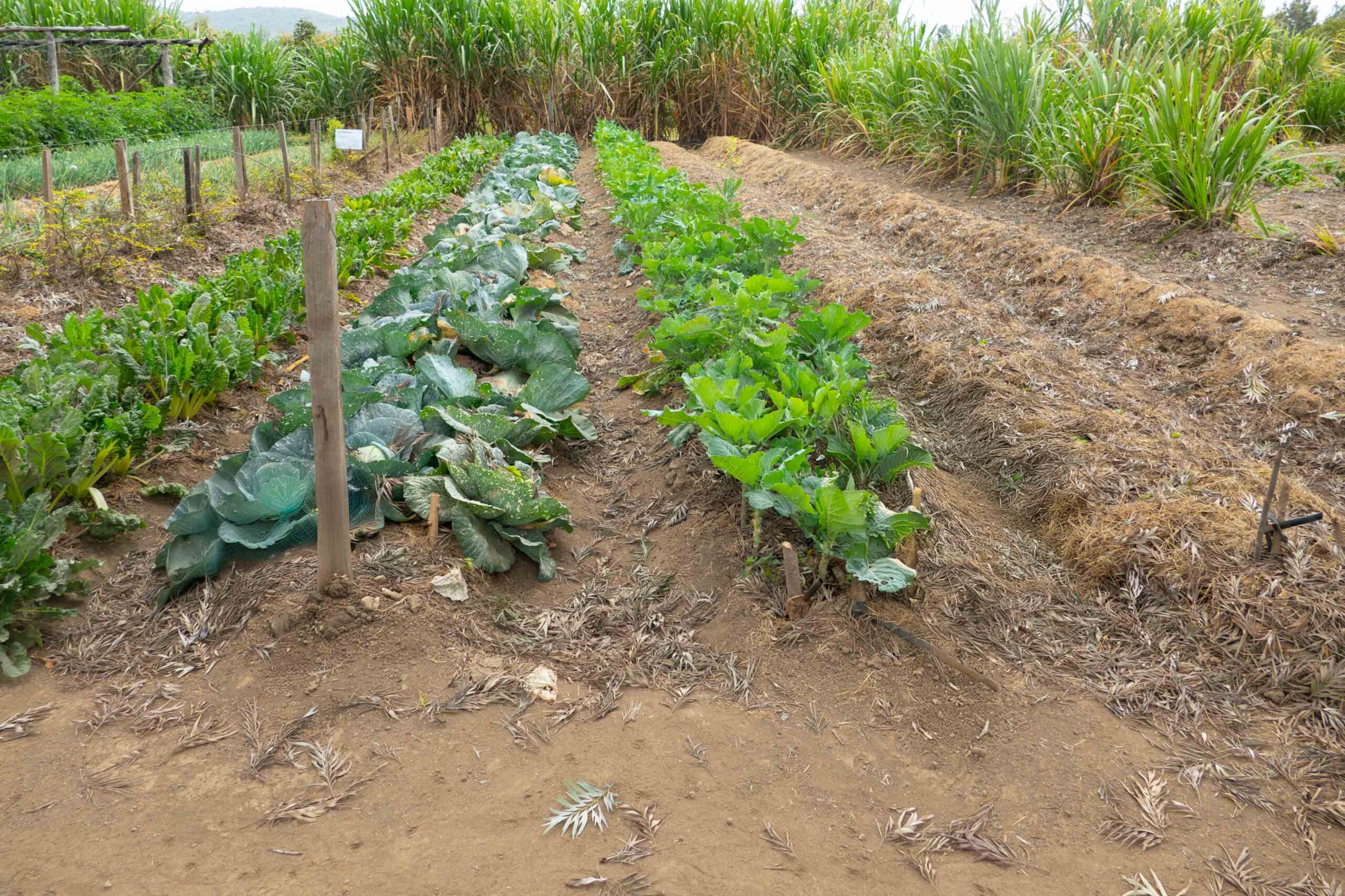Abstract
Nature conservation is currently shaping many terrestrial ecosystems in Africa. This is particularly evident in Sub-Saharan Africa (SSA), where conservation is intended to recover wildlife populations, with special focus on elephants. Rising numbers of elephants induce woody biomass losses but increase soil organic carbon (SOC) stocks from decaying wood and dung. We hypothesized that these increases under wildlife conservation in SSA go along with rising contents of plant residues in SOC, traceable by the molecular markers lignin and n-alkanes. In contrast, agricultural intensification would reduce them due to lower C input and faster SOC turnover through tillage. To test this, we analyzed lignin by the CuO oxidation method and n-alkanes by fast pressurized solvent extraction in topsoils (0–10 cm) of Arenosols and corresponding plant samples (trees, grasses and crops). Sampling sites followed conservation gradients with low, medium and high elephant densities and intensification gradients with rangeland and cropland in the woodland savanna of the Namibian Zambezi Region. Patterns of lignin-derived phenols were retained in the soil, whereas n-alkanes showed shifts in chain lengths. n-Alkanes also showed no clear increase or decrease under conservation or intensification, respectively. Differently, lignin-derived phenols showed lower values under intensification than under conservation. Confirming our hypothesis, rising SOC contents with rising elephant densities (from 4.4 at low to 5.7 g kg−1 SOC at high elephant densities) went along with an increasing accumulation of lignin-derived phenols (24.4–34.8 g kg−1 VSCOC). This increase is associated with the input of woody debris to the soil, as indicated by V-units and carbon isotopes, modulated by clay and woody biomass. We conclude, that increasing input of woody residues into soil by browsing behaviour of elephants is an important mechanism for controlling SOC supply in the context of wildlife conservation and is traceable with lignin-derived phenols, but not with n-alkanes.
Sandhage-Hofmann, A, Angombe, S, Kindermann, L, Linstädter, A, Mörchen, R 2022, ‘Conservation with elephants and agricultural intensification: effects on lignin and n-alkanes in soils of sub-Saharan Africa‘, Geoderma, Vol. 425, 116009, DOI.






